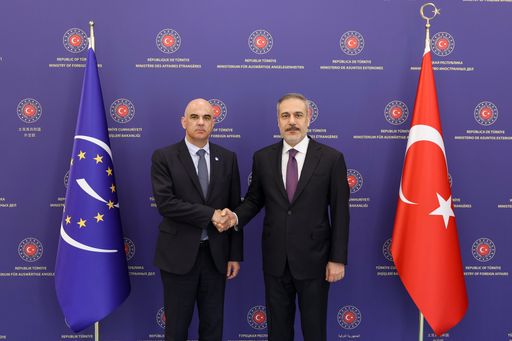The Council of Europe’s anti-racism commission released its annual report on Wednesday, highlighting some of the most common forms of racial discrimination in Europe and urging states to step up efforts to combat it.
The report, covering the 2024 activities of the European Commission against Racism and Intolerance (ECRI), raised concerns over law enforcement officials frequently stopping and searching individuals based on ethnicity.
Racial profiling particularly affects Black people, migrants, Roma, Muslims and those perceived as such, the report said.
It added that some European countries were found in violation of the European Convention on Human Rights for failing to properly investigate such incidents.
“Racial profiling has considerable negative effects on society as a whole, generating a feeling of humiliation and injustice among affected people,” it warned.
Despite the challenges, the report welcomed “encouraging initiatives” in some countries, such as the development of clear anti-profiling rules and improved tracking systems for stop-and-search practices.
“Governments and the leadership of law enforcement agencies should build on such initiatives and take resolute action,” the report said.

Türkiye's Foreign Minister Hakan Fidan meets with Alain Berset in Ankara, where the two officials discussed cooperation between Türkiye and the Council of Europe.
On the issue of Roma children, ECRI reported that school segregation remained “high” in several countries, often stemming from residential patterns but also from school practices.
It stressed that learning in segregated settings “results in lower-quality education for Roma children” and called on governments to “end all forms of segregation of Roma children in schools.”
The commission further noted that many equality bodies across Europe “lacked adequate human and financial resources to carry out their tasks effectively” and warned against political pressures undermining their independence.
However, it welcomed the adoption of a new EU directive in May 2024 that sets binding standards for such institutions.
“Now more than ever, the effectiveness and independence of equality bodies should be strengthened,” said ECRI Chair Bertil Cottier.

The text is adopted at the annual ministerial meeting of the Council of Europe's Committee of Ministers, which brings together the foreign ministers of the 46 member states.















